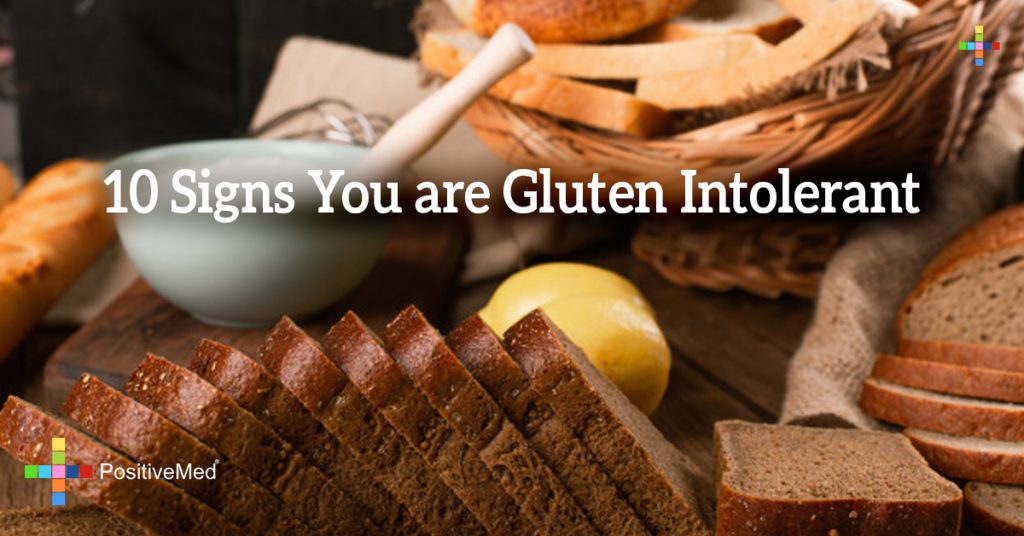
Gluten sensitivity, also called gluten intolerance , should be checked to know if you should modify your diet. About 15% of US population is gluten intolerant. There are more than 55 diseases associated with gluten. Gluten is a protein found in wheat, rye, and barley. We have a list of symptoms to help you know if you are gluten intolerant. If you are experiencing at least 4 of these symptoms after eating products that contain gluten, you may want to modify your diet:
1. Digestion problems
The most common symptoms of gluten intolerance are digestive problems like gas, bloating, constipation, and diarrhea which are often experienced after eating foods that contain gluten. The symptom common in children is constipation. Many diagnosed with irritable bowel syndrome (IBS) feel better when they stop eating foods with gluten.
2. Mood
Problems associated with mood can signify you are gluten intolerant. These problems involve anxiety, depression, ADHD , and mood swings. You can alleviate some of these psychological issues by eliminating gluten from your diet.
3. Skin rashes
Skin conditions like keratosis pilaris and dermatitis herpetiformis are directly linked to gluten consumption. These skin conditions involve highly itchy rashes that usually appear on your arms, torso, face, buttocks, hairline, and elbows. Other skin problems that mimic eczema also show gluten contamination.
4. Migraine
Migraines or headaches that occur with diarrhea are different, but if a migraine starts an hour or two after eating foods containing gluten this shows you are gluten sensitive.

5. Fatigue
Chronic fatigue when combined with gastrointestinal problems, especially diarrhea, indicates gluten sensitivity. This happens when your body is incapable of absorbing essential nutrients and vitamins from the food you eat.
6. Joint pain
Foods that contain gluten cause inflammation in the body. This inflammation causes joint pain which is sometimes misdiagnosed as rheumatoid arthritis and is a common symptom of gluten insensitivity. Eliminate gluten from your diet and your joint pain will be reduced drastically.
7. Lactose intolerance
If you are having problems digesting foods that contain lactose then you are likely to have problems with gluten too. If the stomach lining and lactase is being compromised by gluten, you will also experience symptoms associated with lactose intolerance. It is advised to exclude gluten from your diet if you are already lactose intolerant.
8. Problems absorbing vitamins
This is a common symptom of gluten intolerance. If your stomach lining is unable to absorb essential vitamins and minerals from food it can indicate gluten sensitivity. Low iron is also a common indicator of gluten intolerance.
9. Hormone imbalance
Hormonal imbalance problems like infertility, PCOS , and irregular menstrual cycles are linked to gluten intolerance. Gluten causes inflammation which puts excess pressure on the adrenal glands which upset the balance of the entire body and endocrine system.
10. Neurological symptoms
Neurological symptoms include dizziness, poor balance, feeling off-balance, vertigo, numbness, and tingling which indicate inflammation in the nervous system caused by gluten.
There are other symptoms which are not obvious signs of gluten intolerance including adult acne
and diagnosis of an autoimmune disease.

10 Signs You are Gluten Intolerant
By Positivemed-Team
Edited By Stephanie Dawson
[Last Updated on June 5th 2014]







